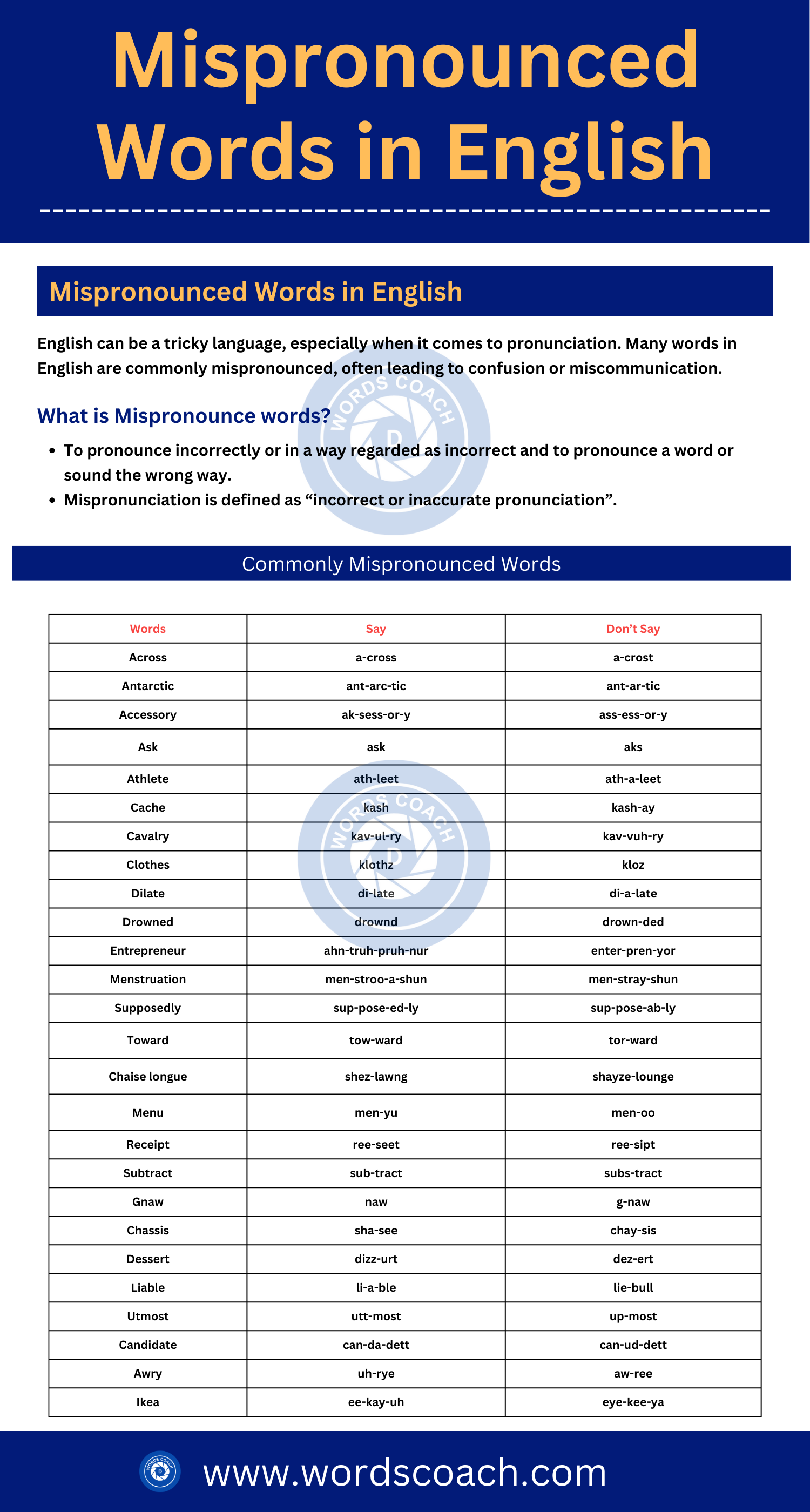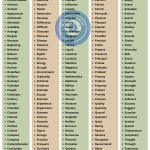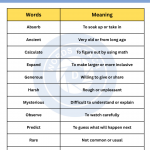A determiner is a word which is used at the beginning of a noun group to indicate. English determiners also known as determinatives.
For example, which thing you are referring to or whether you are referring to one thing or several. Common English determiners are ‘a’, ‘the’, ‘some’, ‘this’, and ‘each’.
The word ‘people‘ by itself is a general reference to some group of human beings. If someone says ‘these people’, we know which group they are talking about, and if they say ‘a lot of people’ we know how big the group is.
‘These‘ and ‘a lot of‘ are determiners in these sentences.
Classes of Determiners
There are several classes of determiners:
- Definite article: the
- Indefinite articles: a, an
- Demonstratives: this, that, these, those
- Pronouns and possessive determiners: my, your, his, her, its, our, their
- Quantifiers: a few, a little, much, many, a lot of, most, some, any, enough
- Numbers: one, ten, thirty
- Distributives: all, both, half, either, neither, each, every
- Difference words: other, another
- Pre-determiners: such, what, rather, quite
- Question words: Which, what, whose
- Defining words: which, whose
The following words are pre-determiners. They go before determiners, such as articles: such and what, half, rather, quite.
Definite article
The definite article is using the word the. It denotes people, places, and things that have already been mentioned, implied, or presumed to be known by the listener.
Articles in English are invariable. That is, they do not change according to the gender or number of the noun they refer to, e.g. the boy, the woman, the children.
- to refer to objects we regard as unique: the sun, the moon, the world
- before superlatives and ordinal numbers: the first page, the last chapter, the highest building
- with adjectives, to refer to a whole group of people: the old, the Japanese (see Nouns – Nationalities)
- with names of geographical areas and oceans: the Atlantic, the Caribbean, the hind Mahanagar
- with decades, or groups of years: she grew up in the nineties.
- where we define or identify a particular person or object: My house is the one with a brown window., The man who wrote this book is famous.
- when both the speaker and listener know what is being talked about, even if it has not been mentioned before.: ‘Where’s the kitchen?’, ‘It’s on the third floor.’
- to refer to something which has already been mentioned: The children loved the rabbit’s soft fur, and the rabbit loved the children playing with her.
Indefinite articles
Use ‘a’ with nouns starting with a consonant (letters that are not vowels), ‘an’ with nouns starting with a vowel (a,e,i,o,u).
Example: An apple, A girl, An elephant, A Lion, An Orange, An hour…
An before an h mute : An hour, An honour, and A before u and eu when they sound like ‘you’: a university, a unit
Demonstratives
THIS, THAT, THESE, THOSE
- Function
– The demonstratives this, that, these, those, show where an object or person is in relation to the speaker.
– This (singular) and these (plural) refer to an object or person near the speaker.
– That (singular) and those (plural) refer to an object or person further away.
Example:
1. What’s in this box?
2. That’s a very good idea. - Position
– Before the noun.
– Before the word ‘one’.
– Before an adjective + noun.
– Alone when the noun is ‘understood’.
POSSESSIVE PRONOUNS AND ADJECTIVES
Possessive pronouns and possessive adjectives show who the thing belongs to.
| PERSON | ADJECTIVES | PRONOUNS | |
| 1st | (I) | my | Mine |
| 2nd | (you) | your | Yours |
| 3rd | (he) | his | His |
| (she) | her | Hers | |
| (it) | it | Its |
| Plural | |||
| 1st | (we) | our | Ours |
| 2nd | (you) | your | Yours |
| 3rd | (they) | their | Theirs |
Example:
- Do you know where your books are?
- Peter and his sister.
- I think this is your passport. Yes, it is mine
QUANTIFIERS
Quantifiers are adjectives and adjectives phrases that give answers to the questions “How much?” and “How many?”
Example:
- I have got a lot of friends.
- I have got a little money.
- Numbers: Ordinal and Cardinal, percentages
- Quantifiers with countable and uncountable nouns
- A few and few, a little and little
- Some and any
- Compound nouns made with SOME, ANY and NO
- Graded Quantifiers
- Enough + Noun
Numbers
CARDINAL and ORDINAL NUMBERS
– The cardinal numbers are adjectives referring to quantity. Ex. one, two, three, etc.
– The ordinal numbers refer to distribution. Ex. First, second, third, etc.
Example:
- Six hundred thousand people were left homeless after the earthquake.
- I must have asked you twenty times to be quiet.
- There are thirty-seven people in the room.
Distributives determiners
All, both, half are distributive determiners. They can be used with countable nouns and uncountable nouns. Sometimes, they are used before articles (a, an, the) or the word “of”. “Of” is always used when preceding plural pronouns.
All – “All” is used when referring to the whole group. It is used before uncountable nouns and plural countable nouns.
Example:
- All of my friends are invited to the party.
- All of us are going.
- All employees were given raises.
Both – “Both” is used when referring to a pair or only two people or items of a group. It is used before plural nouns.
Example:
- Both of them were fired.
- Both sisters were accepted to college.
- Both of the cars were stolen.
Half – “Half” is used when referring to just half of a group. It can be used before singular or plural nouns.
Example:
- Half of the cake was eaten.
- Half of us are staying behind.
- I need half a cup of flour.
DEFINING WORDS
Which and Whose
These words define or explain which thing or person is referred to:
Example:
- He couldn’t remember which film he had seen.
- Tell me which coffee you like.
- The woman whose dog bit you is at the door.
- When I figure out whose paper this is, I’ll sign it.
Whose
The word whose is possessive, and it is often used as an adjective, which is a word that describes or clarifies a noun or a pronoun. It describes who owns something.
Traditionally, whose was only used to describe a person or several persons, as in “Preksha, whose cat is cute, just arrived.” In this case, whose indicates which person’s (Preksha’s) cat we’re talking about.
it’s become grammatically acceptable to use whose to describe things belonging to inanimate objects and places, as well.
Example:
“Ahmedabad is a city whose lights burn brightly all night long.” Here, the lights belong to the city.
QUESTION WORDS
WHICH, WHAT, WHOSE
– We use question words to ask certain types of questions.
– We often refer to these words as WH words because they include the letters WH (for example WHy, HoW).
– These words ask which thing or person is being referred to. They are placed before the noun.
Example:
- What did you do that for?
- Which colour do you want?
- What is your name?
- Whose are these keys?
DIFFERENCE WORDS
OTHER, ANOTHER
– These words refer to something different, additional, or remaining.
– They are placed before the noun.
– Another is used with singular nouns. And Other with singular or plural.
Example:
- She’s going to the cinema with other friends.
- Have another cup of tea.
- There are other jobs you could try.
- I don’t like this restaurant. I want to go to another restaurant.





